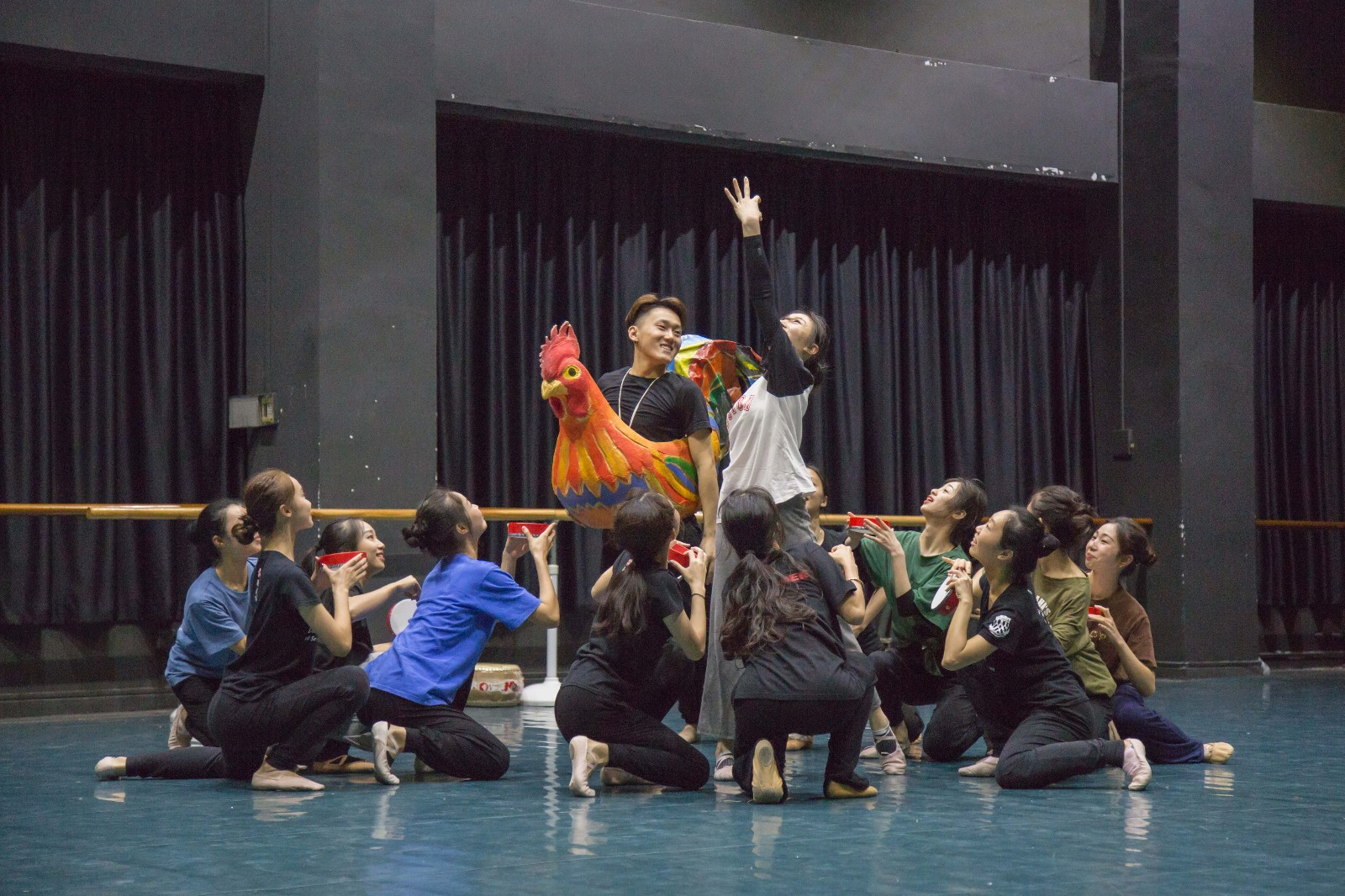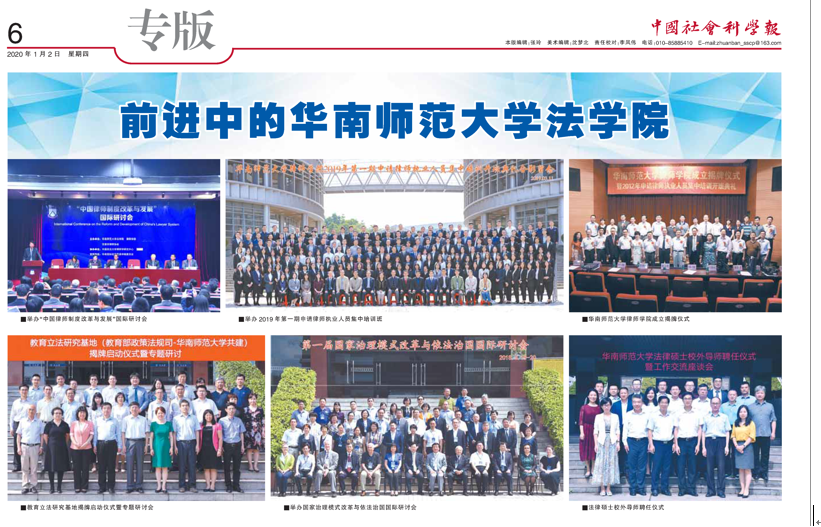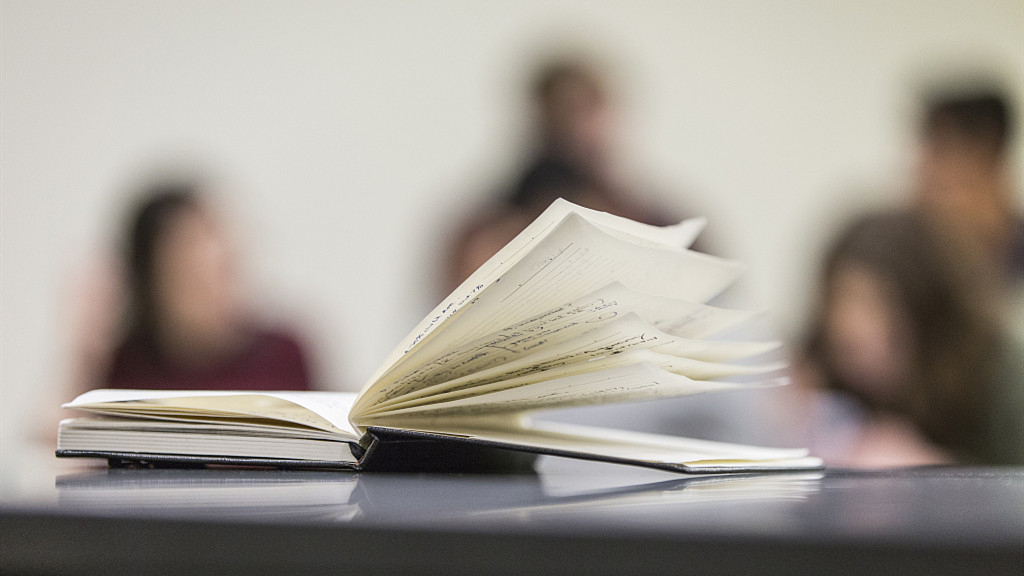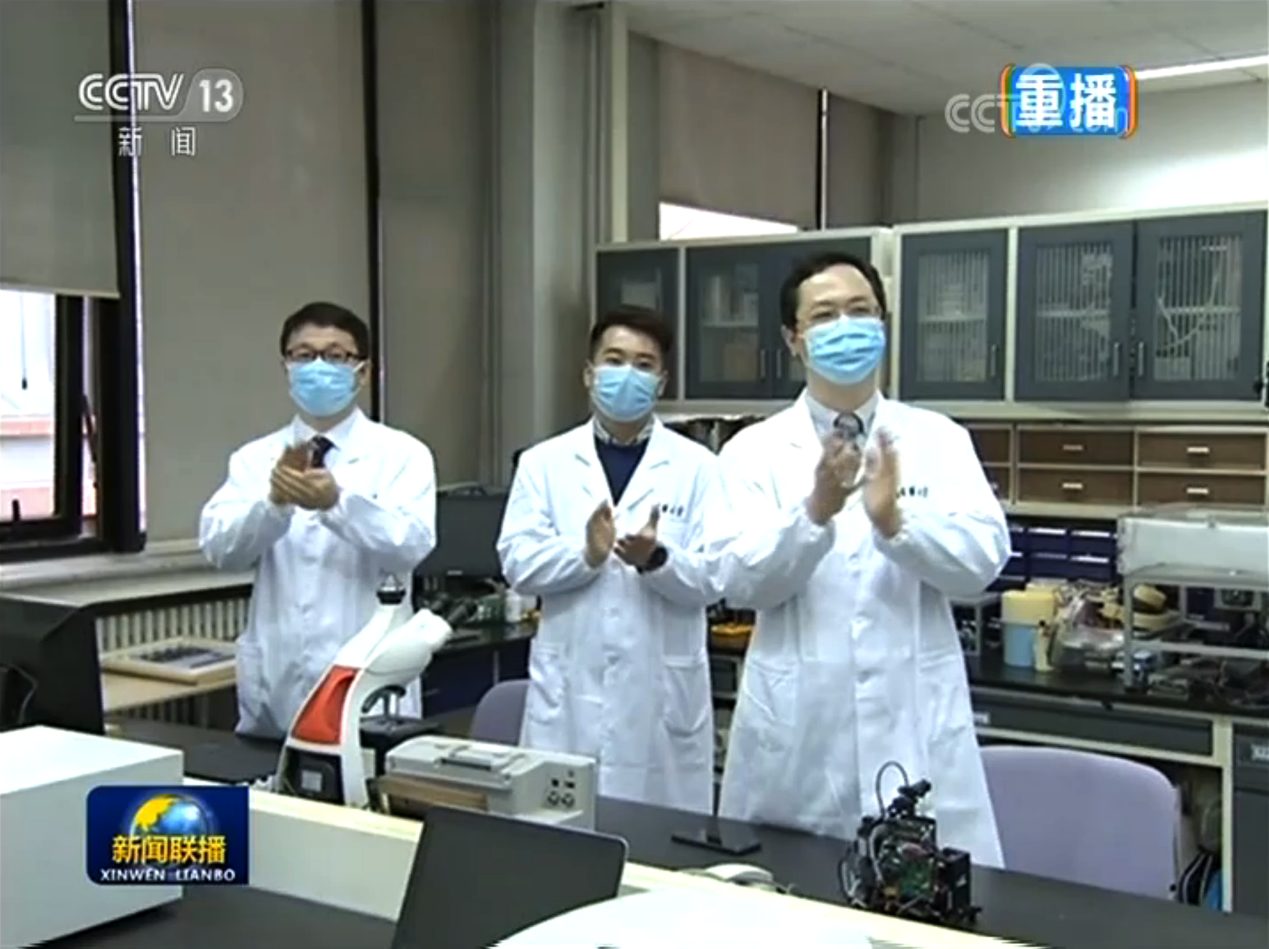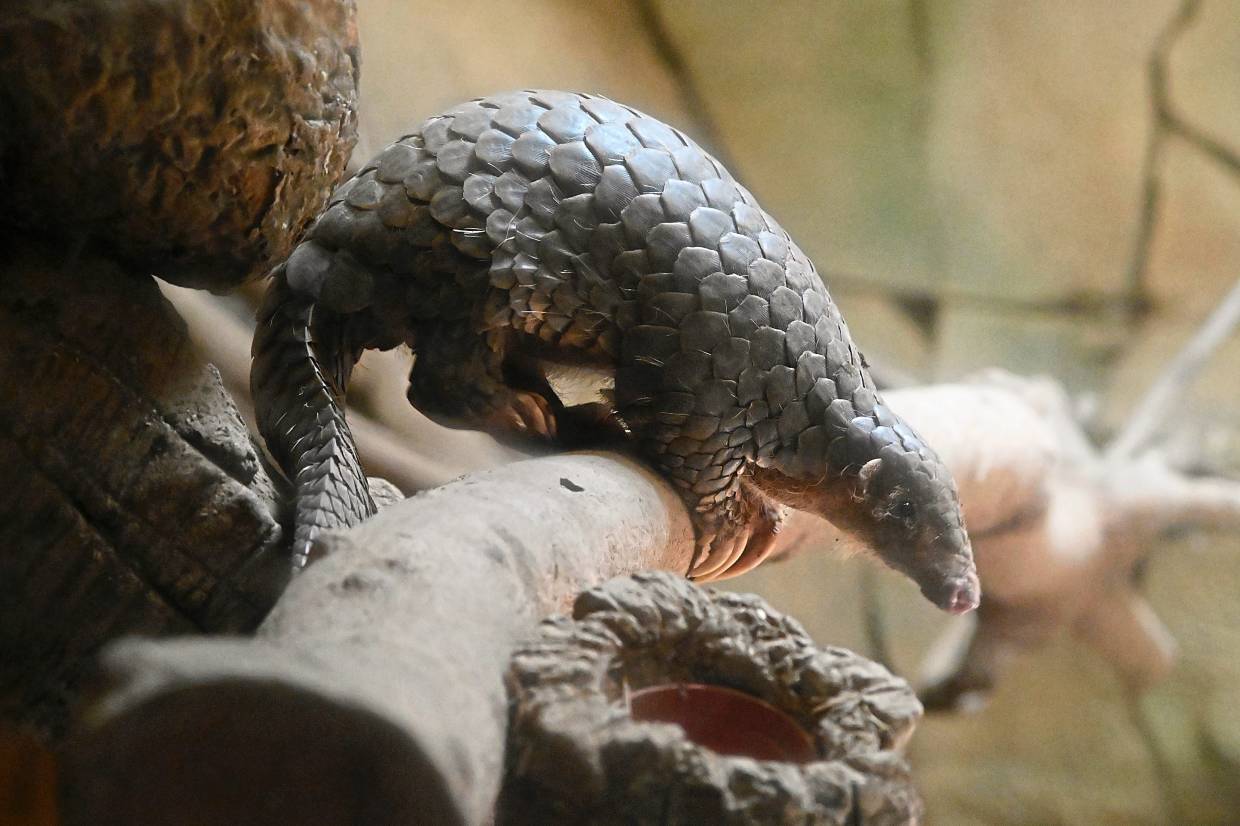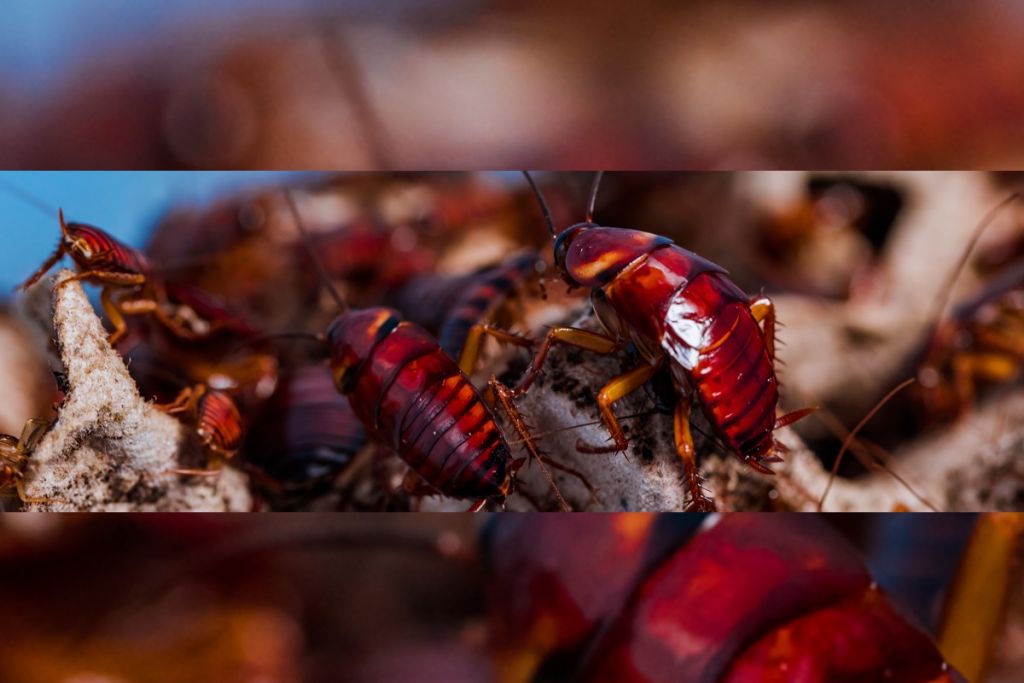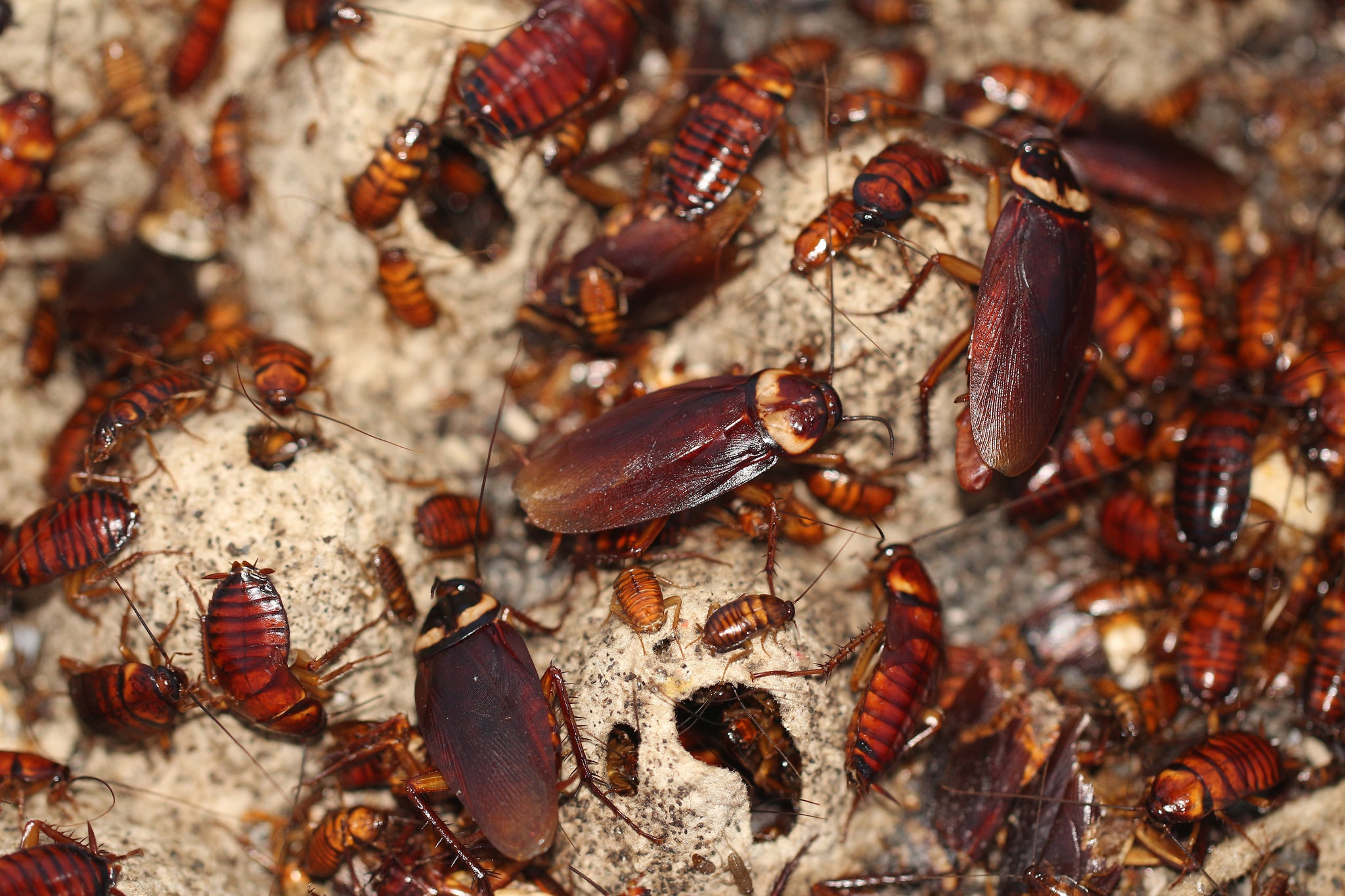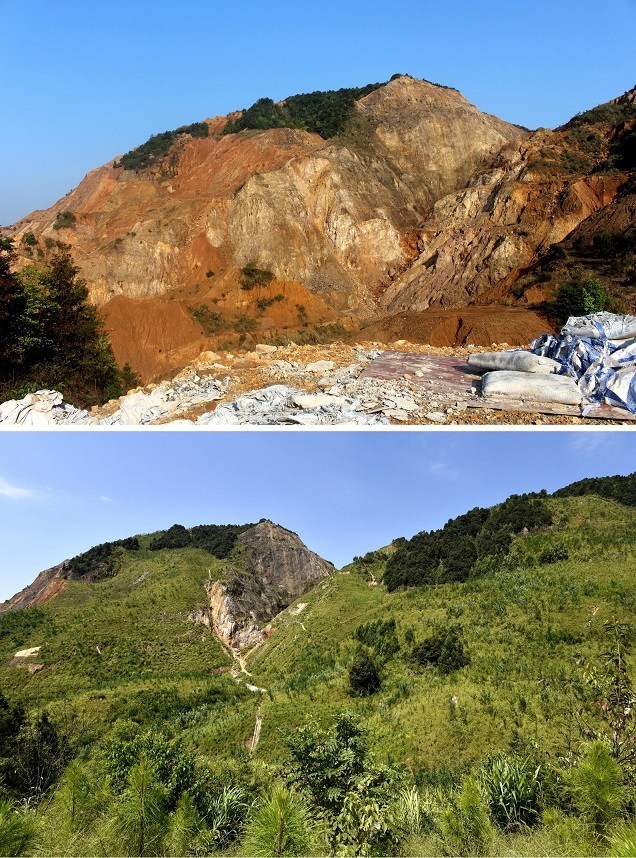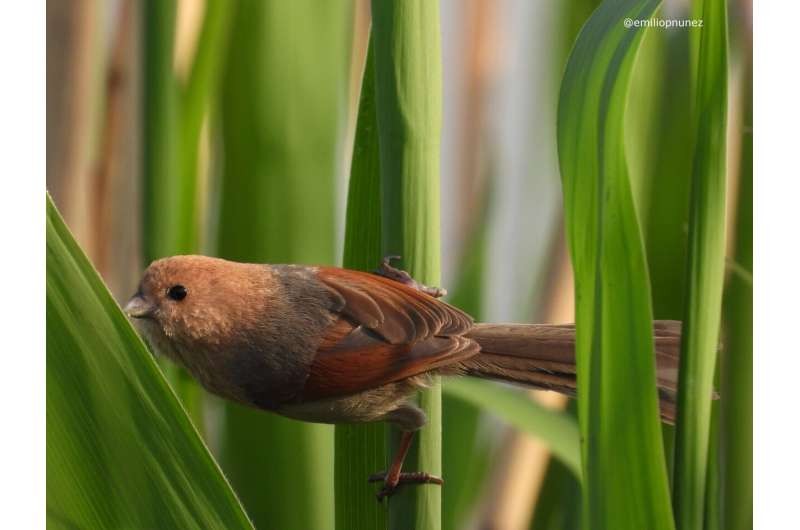
Likes
The research findings were recently published in the journal Conservation Biology. Haisheng Jiang, a professor from the School of Life Science of SCNU is the corresponding author.
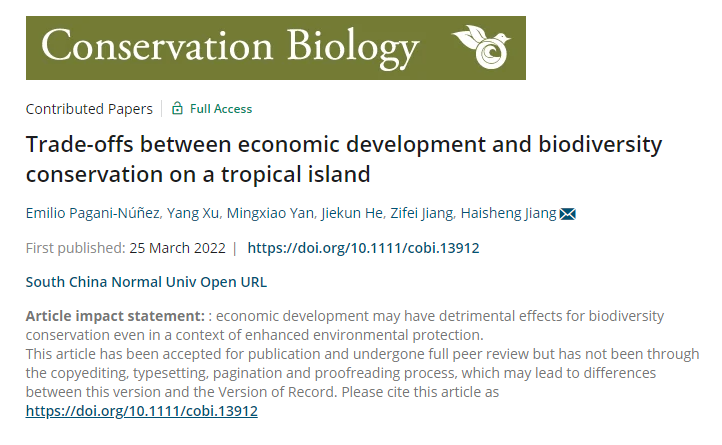
Tipping the scales
The research team from Xi'an Jiaotong-Liverpool University, South China Normal University, and Guangdong Academy of Agricultural Sciences analyzed the local climate, land and economic changes around Hainan between two time periods, separated by 15 years, to understand the effects of urban growth and conservation on biodiversity.
Their results suggest that large-scale economic and land-use changes affect many aspects of biodiversity, such as decreasing species richness and species variability—biotic homogenization. Human activity also appears to cause Hainan's forest birds to be out-competed by more human-tolerant species.
Additionally, the study shows that the effects of measures taken to protect Hainan's unique ecosystem are more complex than previously thought. Environmental protection in urban areas positively influences biodiversity; however, similar efforts in rural areas that are initially species-rich result in less biodiversity. This dual effect results in no significant net loss in biodiversity.
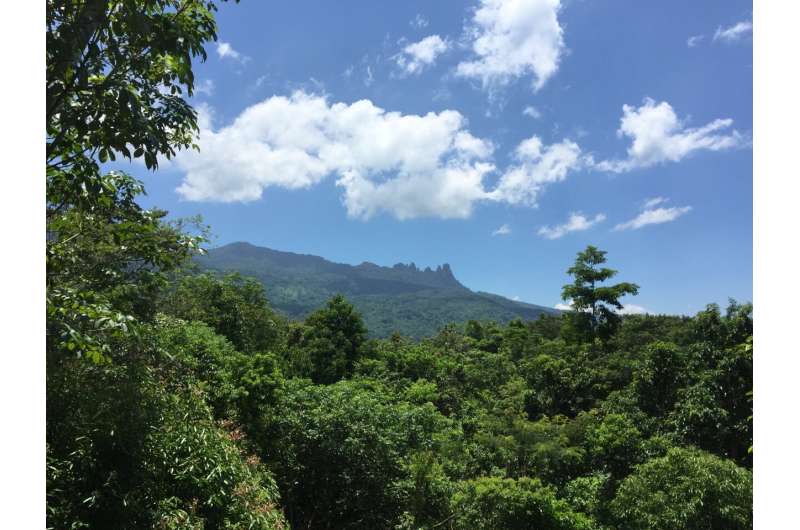
Hainan Island is one of the world's largest tropical islands and is home to over 400 species of birds. Credit: He Jiekun
Dr. Emilio Pagani-Núñez, the first author of the study, says that they "found that extreme negative effects on biodiversity were averted by environmental legislation. However, we also recorded an increasing similarity between communities around the island and complex effects of human activities on biodiversity."
"We are showing that there is hope for biodiversity, that economic growth and enhanced biodiversity conservation are possible. However, a price will be paid, and it is our duty to prevent such negative effects by developing targeted policies on especially diverse or sensitive ecosystems and communities."
Dr. Pagani-Núñez continues: "Biodiversity loss and biotic homogenization are pervasive trends in the Anthropocene."
"We are witnessing the sixth mass extinction, which means a simplification of natural communities only comparable to previous traumatic events that considerably reduced worldwide biodiversity. If these negative effects of human activities do not decrease, it is highly likely that natural communities will not have the chance to recover."
"Governments and companies need to invest more in biodiversity conservation and integrate biodiversity conservation into economic development plans to create landscapes for both biodiversity and people," says Dr. Pagani-Núñez.
Dr. Pagani-Núñez hopes that further research in the related fields of this subject can be carried out in the future, extending their research to include amphibians and mammals across larger geographical areas. A better understanding of the effects of urban growth on biodiversity will help coordinate the balance between environmental protection and economic development and provide more guidance for sustainable development.
The paper ‘Trade-offs between economic development and biodiversity conservation on a tropical island’ can be read here.
Source: https://phys.org/news/2022-04-tropical-birds.html
What to read next:
